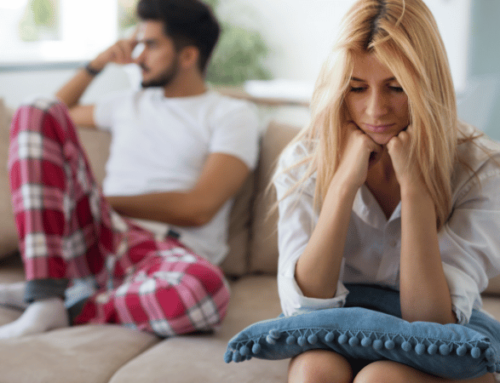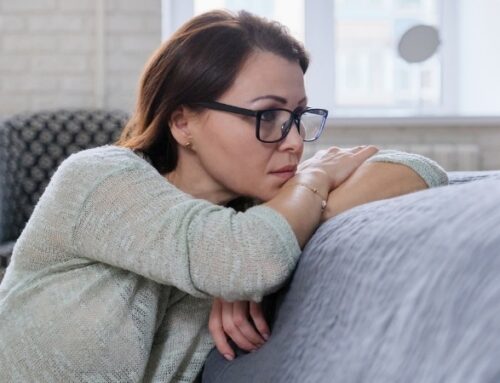As the actual Covid-19 pandemic continues to spread across our country, an emotional pandemic is following quickly behind it. Many people find it exceedingly difficult during these uncertain times to remain calm, as their minds race to think about every bad outcome. The mind is a fragile space, even during the best of times, and having to cope more and more during the bad times leaves people feeling anxious, worried, and desperate.
Even before the spread of Covid-19 in our country, the United States was already a clinically anxious place. According to a statistical chart from the National Institutes of Health, nearly 20% of all adults in America will experience at least one anxiety disorder within a 12-month period of time.
Licensed clinical social workers are the unsung heroes in their communities and work in places such as schools, hospitals, and even the criminal justice system to help increase the quality of life for those around them. In today’s world, a stressful and fast-paced society, it is so important to have and know effective ways to deal with the impacts of mental health. Licensed clinical social workers spend a lot of their time offering mental health services to those who need them the most. They often address the prevention, diagnosis, and treatment when working with people in need. One of the main goals as a licensed clinical social worker is to improve the quality of life for those individuals that they help.

Coronavirus Pandemic Leads to Anxiety and Panic
Mixing a pandemic with any anxiety disorder is a recipe for disaster. There are a dozen different anxiety disorders and related conditions out there. The ones most likely to be affected by the COVID-19 spread include generalized anxiety disorder, obsessive-compulsive disorder, social anxiety disorder, agoraphobia, acute stress disorder, and separation anxiety disorder. The most common of these issues is Generalized Anxiety Disorder. GAD involves a pathological response to everyday challenges such as work deadlines, worrying over money, parenting, relationships etc. For those who suffer from this disorder, these common problems that everyone faces can produce disabling side effects.
Coronavirus has surely made a significant impact on many of us due to job loss, home insecurity, or taking care of children during this trying time. The worries our country is facing have become magnified to new heights while many Americans wonder if or when they will lose their job if they can pay their bills, or how they will feed their family. What follows is your mind wandering to the worst possible scenario and not being able to shake the demise that comes along with it.
Those suffering from Obsessive Compulsive Disorder might also be one of the most susceptible groups that are impacted by this outbreak. It was hard enough before a virus of this magnitude broke out within the country. Now many individuals suffering from OCD worry that much harder about germs, disease, and interacting socially with others. When the world finally tells you that there truly is something like this to fear, it becomes that much more difficult to manage the anxiety you are already dealing with. A key factor with OCD symptoms is the intolerance of uncertainty because it is hard to know what and who to trust right now.
Symptoms of Anxiety During COVID-19
Living your life during a pandemic is a stressful situation whether you suffer from anxiety or not. If you have noticed your level of anxiety and fear increasing, it is important to know that your increased anxiety is a reaction to these stressful times. Recognizing and knowing the stressors that cause your anxiety is the first step to find effective coping mechanisms that work for your unique situation. Symptoms of anxiety during COVID-19 can range from minor to extreme and include:
- Insomnia
- Excessive worry or feelings of impending doom
- Nausea
- Heart palpitations
- Trembling
- Fatigue
- Lack of concentration
- Irritability or restlessness
One of the greatest things you can do to help control your anxiety is to focus on what you can control. The unpredictability in our world right now is going to make anyone anxious. When you focus on what you can control you can use that to bring feelings of normalcy back into your life. Establishing manageable routines will help you control your actions and reactions.

Virtual Treatment for Anxiety Disorders
If you need professional help and guidance to treat your anxiety disorder, we offer virtual therapy at the Counseling Center for Growth and Recovery. We focus on a solution-motivated approach where we can explore your challenges in a safe way, all from the comfort of home through online counseling. Dealing with anxiety, stress, fear, and panic due to COVID-19 is not easy to face alone. Luckily, you do not have to face it on your own and our licensed psychotherapists are ready to help you or a loved one get through this. Contact us for a free and confidential consultation today.





